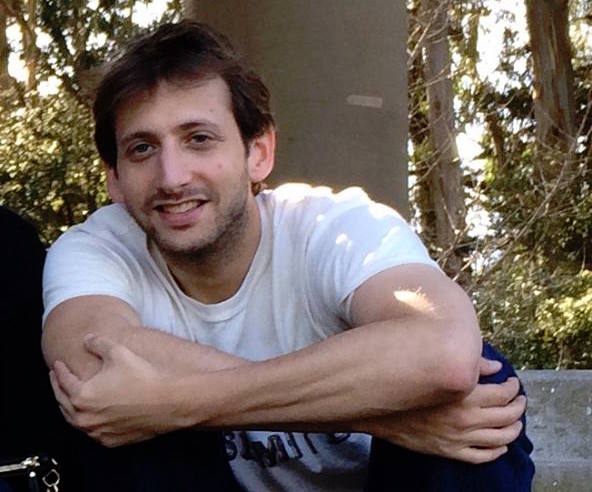This article was originally published on Psymposia.
I recently wrote an article for Newsweek describing how an LSD trip helped me become a happier person and quit smoking. This decision to ‘come out’ of the psychedelic closet, so to speak, was a difficult one that I’ve struggled with ever since I started experimenting with psychedelics. I’m a lawyer, and even though I’m not currently practicing, my membership in the bar gives me the kind of career and financial security that most people struggle for.
So why put this at risk? Why was it important to me to share my experience?
My case is one of extremes. When I founded the Psychedelic Society of Brooklyn in the spring of 2015, I couldn’t have been further IN the closet. Not only did I refuse to acknowledge my psychedelic history in public, I wouldn’t even acknowledge it in private at my group’s meetings! What’s more, I all but prohibited my own members from talking about their personal experiences when we were together. In part, this was because I wanted my group to be more than just a trip-sharing forum. But I was also concerned that the mere mention of illegal conduct would implicate me somehow. So what changed?
What explains the evolution from my overly cautious behaviour where I wasn’t just in the closet myself, but trying to keep others in there with me, to admitting to having used LSD in a mainstream magazine?
Just as with gay rights, the psychedelic movement requires person-to-person advocacy. This can take the form of education, of explaining these substances from a cultural, historical, or scientific perspective. But in my opinion, the most effective way to change someone’s mind, or at least get them to reconsider their original position, isn’t through intellectual discourse; it’s through emotional connection. And this requires that we share our personal experiences.
‘Coming out’ forces others to reconcile their rhetoric and ideology with the very real human being standing in front of them. To take an example from the gay rights movement, remember when Republican Senator Rob Portman of Ohio reversed his position on gay marriage after his son admitted to being gay? Indeed, it’s far more difficult for a father to think gays are pathological sinners when his son, someone he knows doesn’t fit that description, comes out of the closet. And much the same process can happen with psychedelics. Psychedelic users are considered societal pariahs, a vestige of the 1960s hippie generation. So when an educated, responsible, and productive member of society shares his personal experience, it paints a completely different picture that causes the rest of us to reconsider the conventional wisdom.
But when I started the group last summer, I didn’t really get this. I told myself that my strengths were advocacy and public policy, that my spiel about the injustice of prohibition would be plenty persuasive, and that I could effectively write about psychedelics without acknowledging my own personal use. As time went on, however, my thinking gradually changed because, while I stayed in the closet, many people both inside and outside of the group shared their stories with me. And the more that did, and did so compellingly, the more I realised how uncompelling my own justifications were for staying silent.
Indeed, not only was coming out the most effective way to advocate for psychedelics, but my own life experience was particularly compelling. In some ways, my personal story directly contradicts the prevailing notion of the psychedelic user that has persisted for decades.
I majored in physics at Princeton. I’m a lawyer who graduated from Georgetown Law. I clerked for a Federal Judge. I held an important job working on statewide public policy in Ohio. And, of course, I had a positive, life-changing trip on LSD. If society was going to continue characterising the people who’ve used these drugs as do-nothings and dropouts, then I could stand up and call bullshit.
And so I did. I finally understood that, given my unique circumstances, I had a real opportunity to speak out about this very important issue. But to do so I had to come out publicly.
I’ve always considered myself a person of integrity, someone who speaks out when other people won’t, and I think my decision to write the Newsweek article is consistent with those qualities. But that’s not the end of this story.
My case isn’t just a triumph of courage over playing it safe. I benefited from coming out. I got to write about my experience for a prestigious mainstream magazine, and I’ve also been given the opportunity to write an article for this one. But more importantly, I have to acknowledge that my decision is as much a function of my privilege as it is of my courage.
A relative of mine is fond of saying, “There’s principle and principal, and you should care much more about the latter.” What he means, of course, is that money matters more than your convictions. And even though I’ve always ignored his advice and prided myself as a person of principle, it’s clear that my principal is, in part, what gives me the freedom to be principled. I know deep down that if the worst happened, I have a large support network that would help me.
So what’s my final message? Coming out of the psychedelic closet is a terrific way to speak truth to power and advocate for an important cause. If you have the courage or the privilege, you should consider joining me on the other side. Or just lend your support to the conversation with the newly launched campaign #PsychedelicsBecause. We need your voice and those of many others to help undo the damage done by decades of propaganda.
Daniel Miller is the co-founder of the Psychedelic Society of Brooklyn, and has written for the Washington Post and Newsweek. Tweets @DanielMillerEsq

